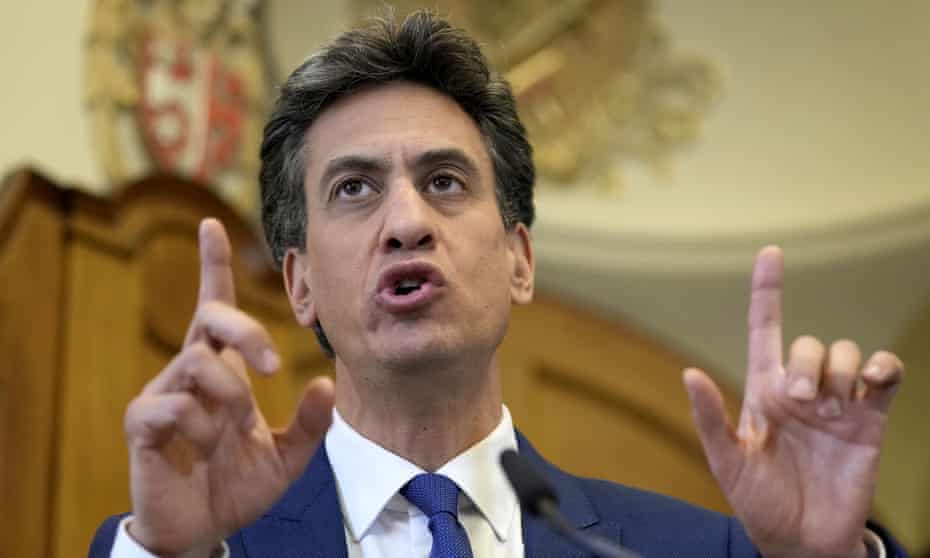China’s coal plans could derail Cop26 climate ambitions, says Labour
Ed Miliband joins climate experts in expressing deep concern over Beijing’s plans to step up coal output

Last modified on Wed 13 Oct 2021 12.48 EDT
China’s “deeply concerning” plan to burn more coal threatens to derail the UK’s efforts to coordinate tougher global commitments to reduce carbon emissions at next month’s Cop26 summit in Glasgow, according to climate experts and Labour.
Beijing has ordered its major coal-producing regions to step up output, after large parts of the country were hit by rolling blackouts affecting factories and homes.
While China has committed to hitting peak CO2 emissions by 2030, comments by the premier, Li Keqiang, indicated that the pledge could take a back seat due to the immediate need to increase power supply.
In a speech targeted at Cop26, the shadow business secretary, Ed Miliband, called for the UK to push China to make a landmark commitment to speed up its climate ambitions. “The news from China today around its domestic coal use is deeply concerning,” he said.
The former Labour leader said China’s recent promise to stop financing investment in coal overseas was welcome but added: “We need to see this matched by action at home.
“And we also need an ambitious target from China in this decade, peaking emissions by 2025 and declining. Being part of the club of nations means acting on climate.”
Miliband hit out at Boris Johnson, saying the UK had not done enough to foster ambitious global agreements at Cop26 and urging the prime minister to “get off the sun lounger and start being a statesman“.
The UK is hosting Cop26, which begins on 31 October, with the former business secretary Alok Sharma acting as the summit’s president. Sharma has been meeting global leaders in an attempt to coax them into making ambitious pledges but is likely to face a tough task to persuade China to speed up its plans.
Li did not formally row back on a promise from China’s president, Xi Jinping, that the country would hit peak emissions by 2030 as part of its target to reach net zero by 2060. But he said China would commission “in-depth studies and calculations in light of the recent handling of electricity and coal supply”, hinting at the possibility that Beijing could adjust its emissions reduction plans in light of the current crisis.
Li said energy security was the priority. Analysts said that makes it highly unlikely Beijing will commit to an earlier target for peak emissions.
Lauri Myllyvirta, lead analyst at the Centre for Research on Energy and Clean Air, said that while China was not abandoning its 2030 pledge, securing a landmark commitment from it to slash coal output at Cop26 would be difficult given recent events.
“The fact that not just China but much of the world is facing a fossil fuel crisis should focus minds on reducing reliance and moving away form fossil fuels,” he said. “But it’s also not the best time to get governments to do long-term planning. Simply the fact that the situation is pretty acute and messy will not make the negotiations easier.
“I’ve been very sceptical of any grand bargain coming out of Cop26 beyond what’s already been pledged. Their energy plans are not in a place where that kind of pledge can be made.”
John Sauven, the executive director of Greenpeace UK, said: “China is not alone in facing a challenging problem but there are a few straightforward facts which have not changed. “We need to leave fossil fuels behind, starting with coal. We need everyone onboard, and time is not on our side.
“Whenever any country decides to prop up and extend a high-carbon industry for a few more years, the cost of that decision will be borne by today’s young people across the world. And they’re already facing enormous consequences for our lack of action so far.”
